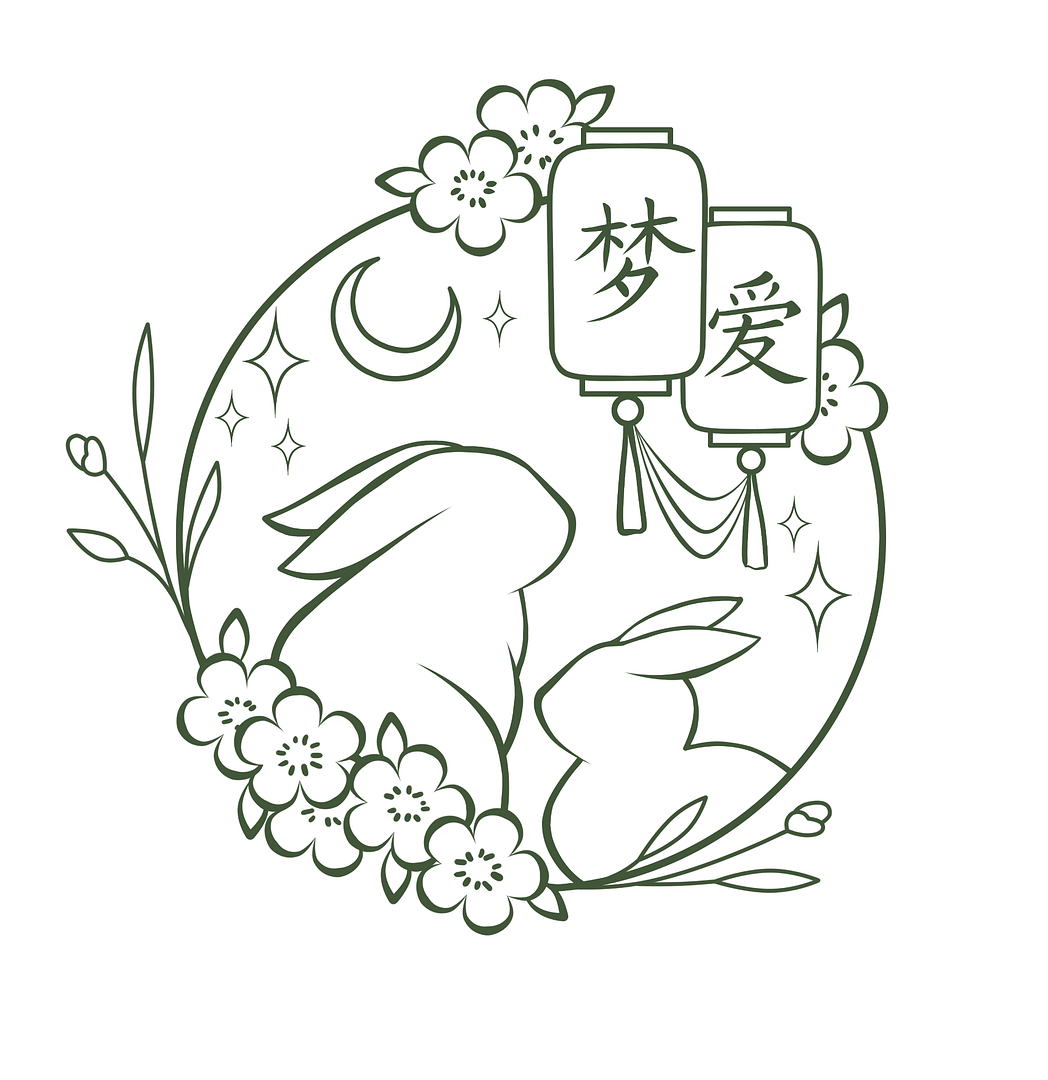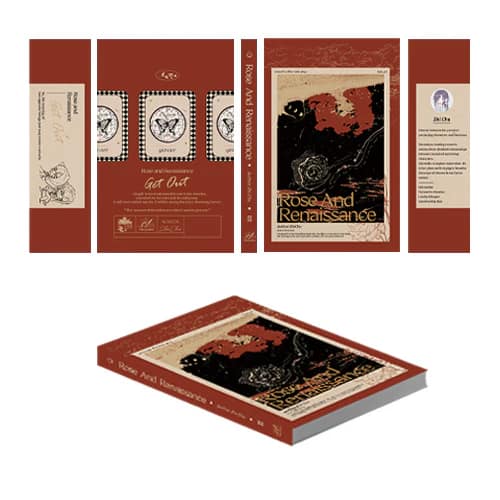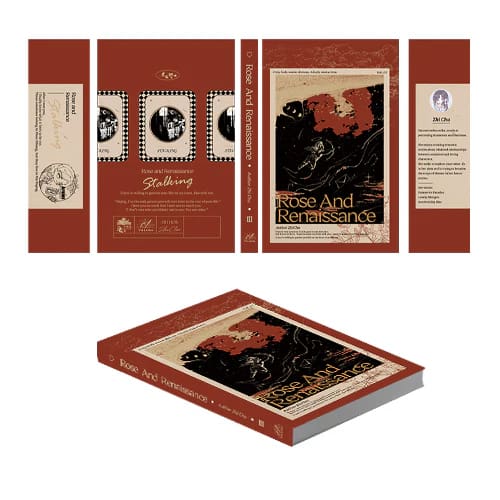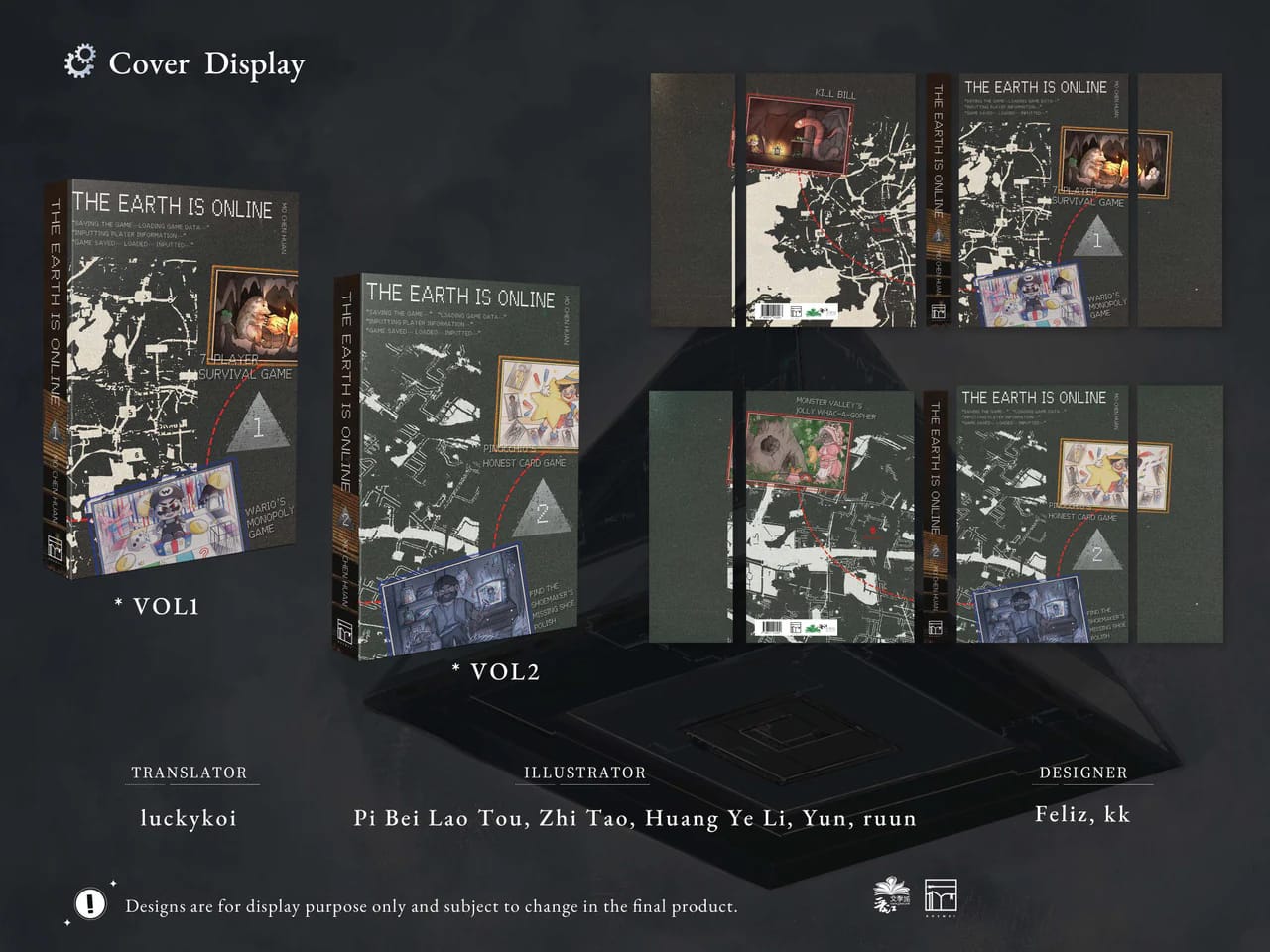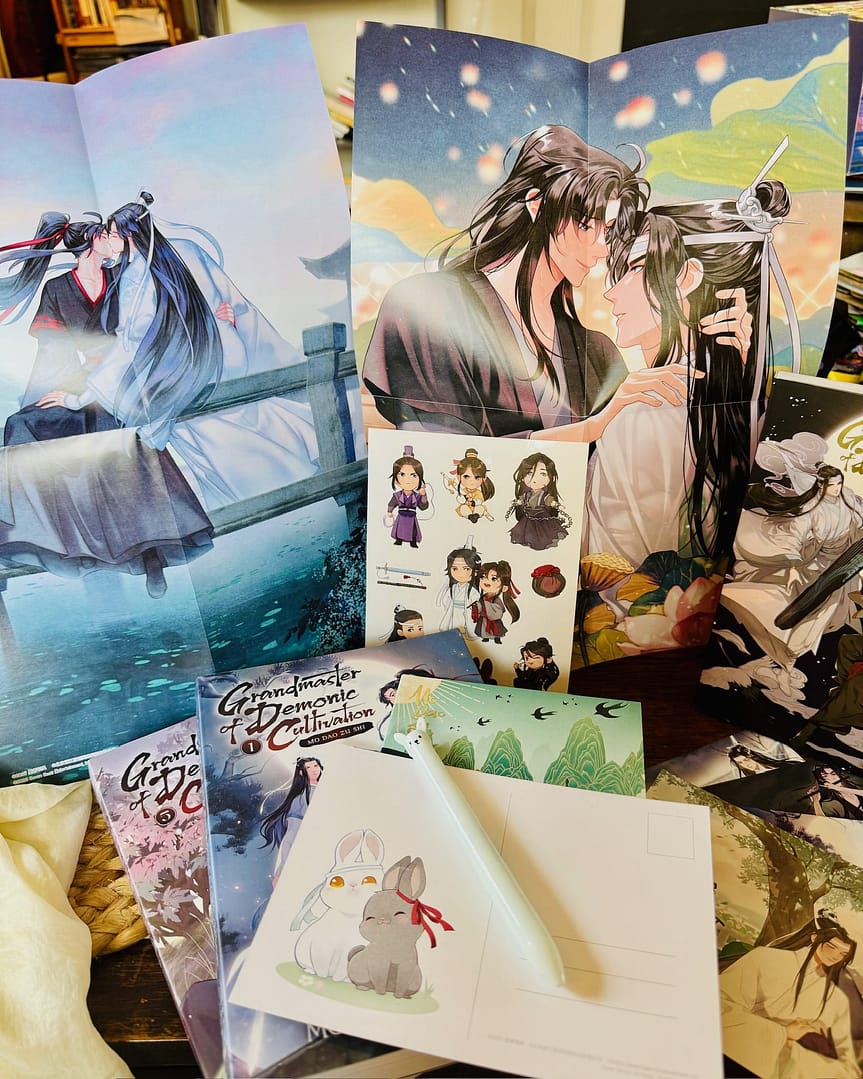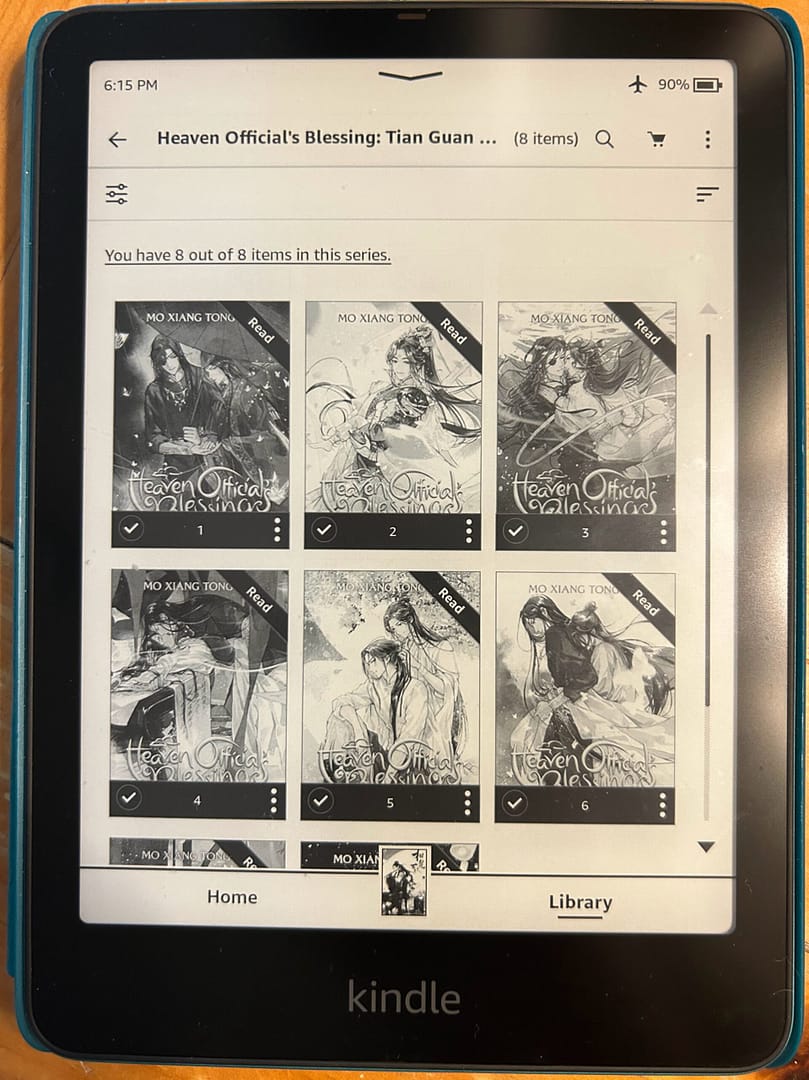Rose and Renaissance v.3 Danmei Novel Review
This is a review for Rose and Renaissance vol. 3 (我只喜欢你的人设[娱乐圈]) by Zhìchǔ (稚楚). This volume is available fully licensed in English from Via Lactea, and can be purchased either directly from Via Lactea (shipping costs outside of Canada can be prohibitive though) or from a third-party retailer.
Please note that all reviews aim to be spoiler-free, while analyses often contain spoilers.
The summary of the book is:
Xia Xiqing is an artist whose angelic looks mask the heartless playboy underneath. When he unexpectedly makes the acquaintance of popular idol actor Zhou Ziheng, the two are thrust into the spotlight and are forced to manage their tangled relationship in front of an audience.

Review Summary
This volume straddles a line between emotionally charged main story and character-driven side material. While it lacks the propulsive narrative force of the previous volume, its emotional resonance is deeper, quieter, and more difficult to shake off. The spotlight lands heavily on Xia Xiqing’s inner world, and the story takes its time peeling back his layers. Some of the best scenes here rely less on big moments and more on subtle shifts—how love becomes undeniable not just in confession, but in caring, in letting someone in, in showing them the locked rooms of your past. Though the structure meanders with the inclusion of extras, the payoff is rich for readers already invested in the emotional arc. It’s a volume that hits like a storm: slow-building, intense, and leaving behind a different landscape.
Romance and Main Characters
This book is all about Xia Xiqing—how his pain twists into defensiveness, how his instincts clash with his desire to be loved, and how Zhou Ziheng becomes the one person he can’t push away. Through illness, jealousy, and vulnerability, we see a more textured version of their relationship emerge. Zhou Ziheng continues to be a striking presence: patient, grounded, and sincere even when provoked. But it’s the tension between their emotional rhythms that makes the romance magnetic. From lapses in communication to acts of radical tenderness, the chemistry between them isn’t just about sparks—it’s about survival. The confession scene alone reframes everything that came before and sets a new tone for everything after.
Secondary Characters
Familiar faces from earlier arcs reappear to form a cohesive ensemble around the film production setting. The supporting cast is tightly woven into the emotional fabric of the story, not just orbiting the leads but actively shaping their growth. Interactions range from playful to poignant, often revealing new angles to Xia Xiqing and Zhou Ziheng through contrast or quiet support. These aren’t just set pieces or comic relief—they feel like people who matter, grounding the main story in a broader, emotionally resonant world.
Plot
This volume pivots into quieter, more emotionally complex territory. Rather than focusing on external conflicts, the story zeroes in on the filming of a socially charged movie, using it as a device to bring buried traumas to the surface. The pace slows to allow space for character introspection, emotional breakdowns, and gradual revelations, particularly about Xia Xiqing’s childhood. There’s a heavy emphasis on psychological realism—characters act out, misread each other, or retreat at the wrong times. That can be frustrating, but it’s honest. The volume builds toward one of the series’ most powerful emotional climaxes not with drama, but with grace: a quiet hug, a returned glance, a softly spoken “trial period.” And it works.
Worldbuilding
Much of the worldbuilding happens through setting-as-character. The film set becomes a kind of stage for emotional intimacy and unresolved pain, layered with props, artificial rain, cramped trailers, and performance anxieties. The movie-within-a-novel parallels the leads’ own histories without being too on the nose, and the shooting locations—from dimly lit karaoke rooms to a green-glassed tunnel in Wuhan—add texture and atmosphere. Even the unspoken rules of fame, media perception, and sexual politics in the entertainment industry become part of the background pressure, and it’s woven in so naturally that it never feels expository.
Writing Style & Translation:
The writing style shifts noticeably in this volume: narration takes a backseat to dialogue, and entire stretches feel like fanservice extras embedded into the core narrative. It’s a tone switch that might not work for every reader—especially those who prefer introspective narration—but the character voices are strong enough to carry the scenes. Emotions are conveyed more through action and dialogue than internal monologue, and while this can occasionally undercut nuance, it allows for a more cinematic experience. Even when the prose dips into melodrama, it remains emotionally grounded thanks to sharp pacing and control over mood.
Spice Level
Intimacy plays a significant role in this volume, both physically and emotionally. The power dynamic between Xia Xiqing and Zhou Ziheng deepens, with BDSM elements used thoughtfully to reflect trust, vulnerability, and the shifting balance of control between them. These scenes are more than just heat—they’re turning points in the relationship, charged with meaning and emotional clarity. The writing doesn’t hold back, but it never feels gratuitous; every moment of closeness reveals something deeper about who they are together.
How to Read
This volume is available fully licensed in English from Via Lactea, and can be purchased either directly from Via Lactea (shipping costs outside of Canada can be prohibitive though) or from a third-party retailer.
Check out the Review of Other Volumes!
-
Rose and Renaissance v.4 Danmei Novel Review
This is a review for Rose and Renaissance vol. 4 (我只喜欢你的人设[娱乐圈]) by Zhìchǔ (稚楚). This volume is available fully licensed in…
-
Rose and Renaissance v.2 Danmei Novel Review
This is a review for Rose and Renaissance vol. 2 (我只喜欢你的人设[娱乐圈]) by Zhìchǔ (稚楚). This volume is available fully licensed in…
-
Rose and Renaissance v.1 Danmei Novel Review
This is a review for Rose and Renaissance vol. 1 (我只喜欢你的人设[娱乐圈]) by Zhìchǔ (稚楚). This volume is available fully licensed in…
